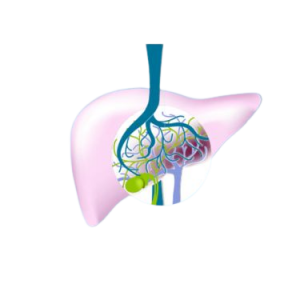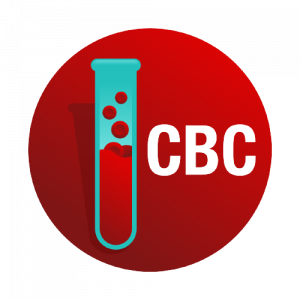Vitamin D Blood Test
$99.00
Vitamin D, also known as the sunshine vitamin, is a fat-soluble vitamin that plays a crucial role in various bodily functions. Vitamin D levels can be evaluated through a blood test measuring 25-hydroxyvitamin D (25(OH)D) levels. While sunlight is the main source of vitamin D, it can also be obtained through certain dietary sources. Fatty fish like salmon, mackerel, and sardines, as well as fish liver oils, are rich in vitamin D. Vitamin D deficiency can occur due to limited sunlight exposure, inadequate dietary intake, certain medical conditions, or impaired absorption. Symptoms of deficiency can include bone pain, muscle weakness, fatigue, increased susceptibility to infections, and mood changes. Severe deficiency can lead to conditions like rickets in children or osteomalacia in adults.
Description
About the Test
Vitamin D is a fat-soluble vitamin that is essential for the absorption of calcium, which is necessary for strong bones and teeth. It also plays a role in regulating the immune system and maintaining healthy muscle function. Vitamin D can be obtained through exposure to sunlight, certain foods such as fatty fish, eggs and mushrooms, and also through supplements.
Calcium is one of the main building blocks of bone. A lack of vitamin D can lead to bone diseases such as osteoporosis or rickets. Vitamin D also has a role in your nerve, muscle, and immune systems.
You can get vitamin D in three ways: through your skin, from your diet, and from supplements. Your body forms vitamin D naturally after exposure to sunlight. However, too much sun exposure can lead to skin aging and skin cancer. So many people try to get their vitamin D from other sources.
Vitamin D-rich foods include egg yolks, saltwater fish, and liver. Some other foods, like milk and cereal, often have added vitamin D.
Overview of Vitamin D Blood Test
Vitamin D is a fat-soluble vitamin that is essential for the absorption of calcium, which is necessary for strong bones and teeth. It also plays a role in regulating the immune system and maintaining healthy muscle function. Vitamin D can be obtained through exposure to sunlight, certain foods such as fatty fish, eggs and mushrooms, and also through supplements.
Calcium is one of the main building blocks of bone. A lack of vitamin D can lead to bone diseases such as osteoporosis or rickets. Vitamin D also has a role in your nerve, muscle, and immune systems.
You can get vitamin D in three ways: through your skin, from your diet, and from supplements. Your body forms vitamin D naturally after exposure to sunlight. However, too much sun exposure can lead to skin aging and skin cancer. So many people try to get their vitamin D from other sources.
Vitamin D-rich foods include egg yolks, saltwater fish, and liver. Some other foods, like milk and cereal, often have added vitamin D.
You can also take vitamin D supplements. Check with your health care provider to see how much you should take. People who might need extra vitamin D include:
- Older adults
- Breastfed infants
- People with dark skin
- People with certain conditions, such as liver diseases, cystic fibrosis and Crohn’s disease
- People who have obesity or have had gastric bypass surgery
Analytes Tested in a Vitamin D Blood Test
1 Analyte
25 hydroxyvitamin D, or 25(OH)D.
What is a Vitamin D Test?
A vitamin D test measures the level of vitamin D in your blood to make sure you have enough for your body to work well. Vitamin D is essential for healthy bones and teeth. It also helps keep your muscles, nerves, and immune system working normally.
Having low levels of vitamin D is a common problem that can lead to bone disorders and other medical problems. Vitamin D testing can let you know if you need to increase your vitamin D levels.
You get vitamin D in three ways:
- Your body makes vitamin D when your bare skin is exposed to sunlight.
- You get vitamin D from certain foods. Only a few foods, such as egg yolks and fatty fish, naturally contain vitamin D. That’s why vitamin D is added to foods, including breakfast cereals, milk, and other dairy items.
- You can take vitamin D supplements.
Before your body can use vitamin D, your liver must change it into another form called 25 hydroxyvitamin D, or 25(OH)D. Most vitamin D blood tests measure the level of 25(OH)D in your blood.
Your kidneys use 25(OH)D to make “active vitamin D.” Active vitamin D lets your body use calcium to build bone and helps other cells work properly. If you have kidney problems or abnormal calcium levels in your blood, your health care provider may order a test of active vitamin D. But this test is not generally used to check whether you have enough vitamin D.
Testing 25(OH)D is the most accurate way to measure how much vitamin D is in your blood.
Other names: 25-hydroxyvitamin D, 25(OH)D, cholecalciferol test, ergocalciferol test, calcidiol test, vitamin D2 test, vitamin D3 test
What Is This Test Used For?
A vitamin D test is used to screen for low levels of vitamin D in your blood so you can treat it with supplements before it causes health problems.
If you have a known bone disorder or a problem absorbing calcium, a vitamin D test may be used to see if a lack of vitamin D is causing your condition. Your provider may order a Vitamin D test if you have:
- Osteomalacia, soft bones, often with muscle weakness
- Low bone density, which can lead to osteoporosis.
- Rickets, a problem with bone growth in children
Because vitamin D can affect many parts of your body, you may have your vitamin D level checked if you have other chronic (long-term) medical conditions. Ask your provider if you should be tested.
Why Do I Need a Vitamin D Test?
Your provider may order a vitamin D test if you have signs or symptoms of a bone condition that may be related to a vitamin D deficiency (very low levels of vitamin D), such as:
- Bone pain
- Muscle weakness or aches
- Soft bones
- Deformed bones
- Weak bones and fractures (broken bones)
- Low bone density (osteoporosis or osteopenia)
A vitamin D insufficiency (mildly low levels of vitamin D) usually doesn’t cause symptoms. So, your provider may order a test if you have a high risk for developing a deficiency because you:
- Are older than 65. As you age, your skin is less able to make vitamin D from sunlight.
- Rarely expose your skin to sunshine because you stay indoors, cover up outside, use sunscreen, or live where there is little sunlight.
- Have dark skin, which makes less vitamin D from sunlight.
- Have had weight loss surgery.
- Have obesity.
- Have a condition that makes it difficult to absorb nutrients in food, such as Crohn’s disease, ulcerative colitis, and celiac disease.
- Have kidney or liver disease that affects your ability to change vitamin D into a form your body can use.
- Take certain medicines that affect your vitamin D levels.
A lack of vitamin D can cause serious problems for babies and children. A provider may order a screening test for:
- Babies that are mainly fed breastmilk.
- Breastmilk is low in vitamin D (All babies need vitamin D supplements shortly after birth, unless they are fed only formula, which contains vitamin D).
- Children with darker skin who live in areas with little sunlight.
- Children with diets low in vitamin D.
If you are taking vitamin D supplements to increase your vitamin D level, your provider may order a test to see if your vitamin D levels are improving.
What Happens During a Vitamin D Test?
A vitamin D test is a blood test. During a blood test, a health care professional will take a blood sample from a vein in your arm, using a small needle. After the needle is inserted, a small amount of blood will be collected into a test tube or vial. You may feel a little sting when the needle goes in or out. This usually takes less than five minutes.
Will I Need To Do Anything To Prepare For The Test?
You don’t need any special preparations for a vitamin D test.
Are There Any Risks To The Test?
There is very little risk to having a blood test. You may have slight pain or bruising at the spot where the needle was put in, but most symptoms go away quickly.
What Do The Results Mean?
The result will give you a total Vitamin D number.
If your total vitamin D level shows a vitamin D deficiency or insufficiency, it may mean you:
- Don’t get enough vitamin D from your diet and/or exposure to sunlight.
- Have trouble absorbing vitamin D in your food, which may be a sign of a malabsorption disorder.
- Have trouble changing vitamin D into a form your body can use, which may be a sign of kidney or liver disease.
The treatment for low vitamin D levels is usually supplements and/or dietary changes. This is usually safer than getting more sun, which may cause skin cancer.
If your total vitamin D level shows you have too much vitamin D, it is most likely from getting too much from supplements. This is very uncommon, but if it happens, you’ll need to stop taking these supplements to reduce your vitamin D levels. Too much vitamin D can cause serious damage to your organs and blood vessels. If you take vitamin D supplements, ask your provider what dose is right for you.
To learn what your vitamin D test results mean, talk with your provider.
Specimen Requirements
SST tube of blood, serum
Turn Around Time
24 hours
Price For Test
Price: $99







